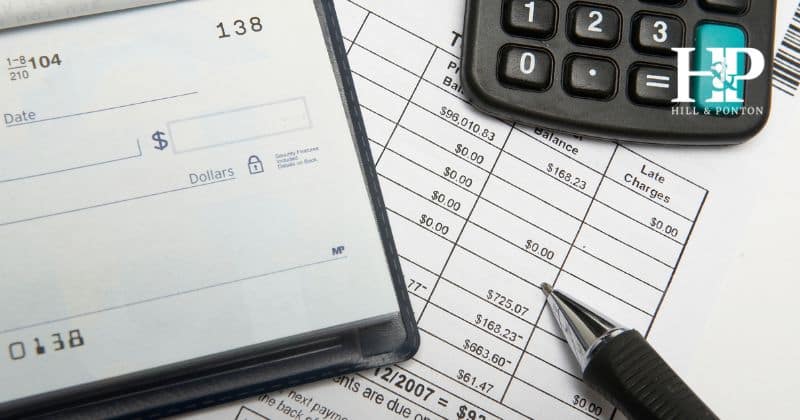Facing challenges with your VA disability claim can be disheartening, whether it’s a denial or a rating that doesn’t truly reflect your condition.
If you’re in this situation, it’s important to know you have the right to appeal.
This guide is designed to simplify the VA disability appeals process, offering a clear path forward for veterans seeking to contest VA decisions.
Understanding VA Disability Benefits
VA disability benefits are monthly payments for veterans who have illnesses or injuries linked to their military service.
However, the path to securing these benefits isn’t always straightforward.
You may encounter hurdles, such as claim denials or receiving a lower disability compensation than anticipated.
While this can be frustrating, there’s a structured appeals process available to challenge these decisions.
Reasons for Appeal
If you are not satisfied with the board decision, you have the right to appeal.
However, it is important to have a valid reason for appeal and provide evidence to support your claim.
The most common reasons for appeal include:
- Incorrect rating : You believe that the VA did not assign the correct disability rating to your condition. For example, you may believe that your condition is more severe than the rating assigned.
- Denial of benefits : Your claim for VA disability benefits was denied, and you believe that the VA made an error in denying your claim.
- Failure to include all service-connected disabilities : You believe that the VA did not consider all of your service-connected disabilities when making its decision.
Note that simply disagreeing with the decision is not enough to file an appeal.
You must have a valid reason and evidence to support your claim.
In addition, you must file your appeal within the required timeframe, which is usually one year from the date of the board decision.
When filing your appeal, you must clearly state the reason for appeal and provide any new evidence that supports your claim.
This evidence can include medical records, statements from your treating physicians, and statements from other individuals who can attest to your condition.
Starting Your VA Disability Appeal
When your claim doesn’t go as expected, the first step is understanding the VA’s decision.
This begins with carefully reviewing the decision letter sent by the VA, which details their reasons.
If you disagree, it’s time to file an appeal.
Did the VA Deny Your Disability Claim?
Let our team review your case today!
Get a Free Case EvaluationWhy Claims Get Denied
Common reasons for claim denials include:
- Insufficient proof of the illness or injury’s connection to military service.
- A lack of medical evidence.
Choosing Your Appeal Path
The VA appeals modernization process, introduced in 2019 streamlines the appeals process, offering three main avenues for veterans
The different paths are as follows:
- Higher-Level Review: A senior VA official re-examines your claim.
- Supplemental Claim: You can submit new evidence that wasn’t included in your initial claim.
- Board Appeal: Your appeal is reviewed by a Veterans Law Judge at the Board of Veterans’ Appeals. A veteran can choose to submit new evidence, have a direct review of the existing evidence with no new evidence, or ask for a hearing at the Board.
Each pathway is designed to address different aspects of the appeals process, whether you’re submitting new evidence or seeking a fresh review of your claim.
Filing Your Appeal
The process begins with completing the appropriate appeal form.
For a higher-level review or supplemental appeals, the veteran files the appropriate Decision Review Request, VA Forms 20-0995 or 20-0996.
For a Board appeal, the veteran files a Notice of Disagreement.
These appeal forms are formal documents where you outline your disputes with the VA’s decision.
Precision in detailing your disagreements and the evidence to support your case is crucial.
After submitting your appeal form, patience is key.
The VA’s review process can be lengthy, but understanding and preparing for this timeline is crucial for maintaining focus on your appeal.
After Your Appeal Submission
Once your appeal is submitted, staying updated on its status is essential.
The VA provides tools for checking the progress of your appeal, offering some insight into where your case stands in the queue.
When the VA reaches a decision, you’ll receive a detailed letter explaining the outcome.
A successful appeal can lead to an adjusted disability rating and potentially increased benefits.
If your appeal is denied, remember, options remain to re-appeal or seek a different review path.
Navigating the Process
Appealing a VA disability claim decision can feel daunting, but it’s a vital step for many veterans seeking the benefits they deserve.
Armed with the right information and resources, navigating the appeals process becomes more manageable.
Remember, each veteran’s situation is unique, and what works for one may not work for another.
Understanding your case, gathering comprehensive evidence, and choosing the most suitable appeal path are keys to success.




